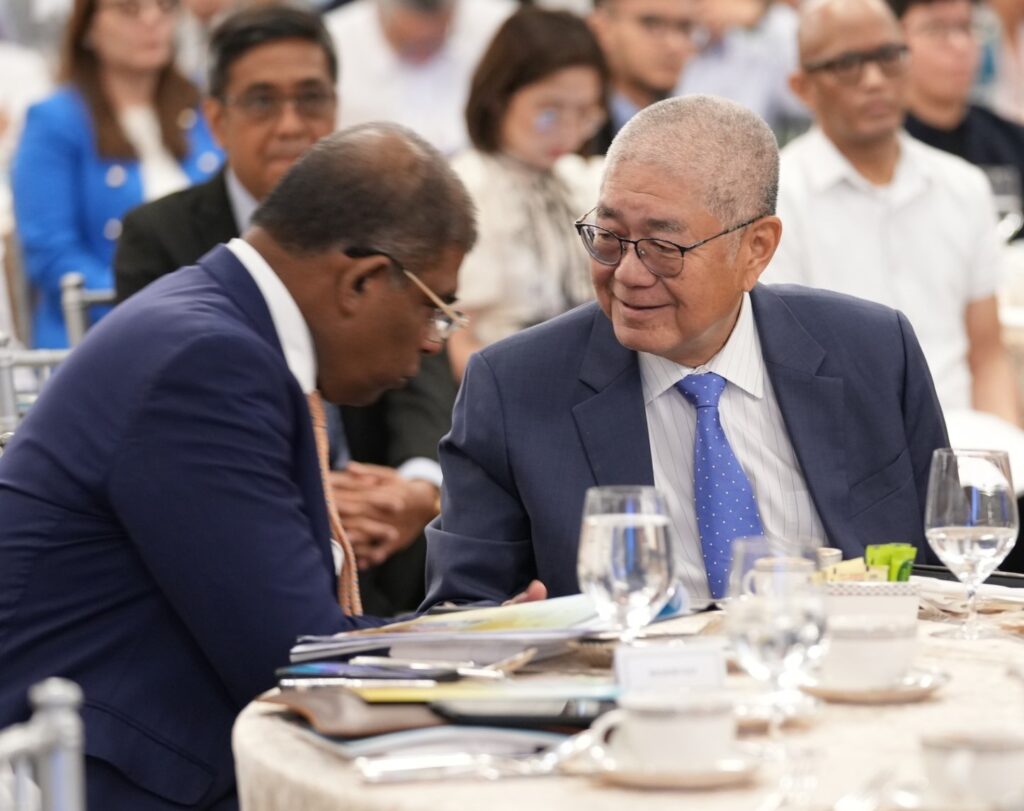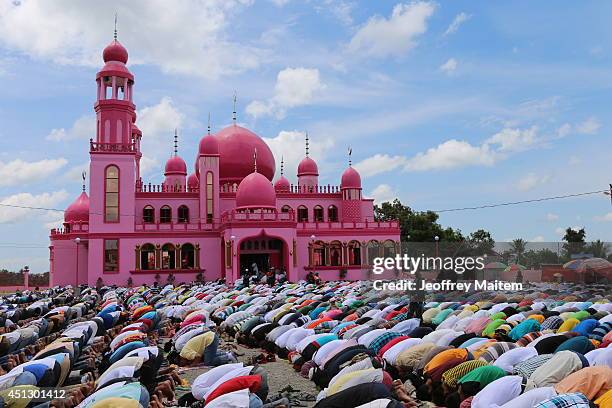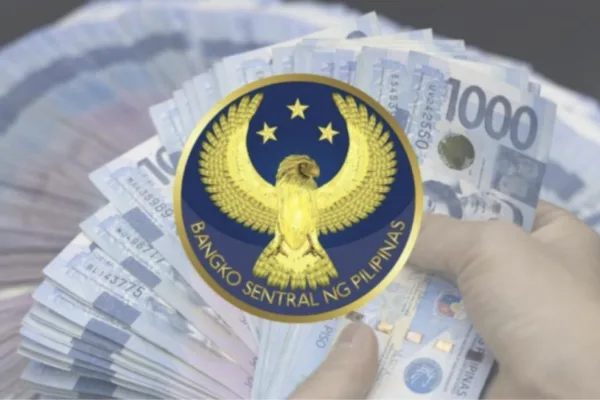The Bangko Sentral ng Pilipinas (BSP) has highlighted the Philippines’ significant potential as an investment hub for Islamic finance.

Photo shows BSP Governor Eli M. Remolona, Jr. (right) with HE Dato’ Abdul Malik Melvin Castelino, Ambassador of Malaysia to the Philippines, during the launch of an ADB report at Manila Peninsula Hotel.
Speaking at the launch of an Asian Development Bank (ADB) report in Makati last November 26, BSP Governor Eli M. Remolona, Jr., emphasized the central bank’s commitment to fostering a regulatory environment conducive to the growth of the Islamic finance sector.
“The Bangko Sentral ng Pilipinas, with support from the Asian Development Bank, has been fostering a regulatory environment conducive to the growth of the Islamic finance sector,” the BSP Governor said in a press statement. “The Philippines offers a unique opportunity for Islamic finance to thrive and we remain committed to fostering a robust regulatory framework that supports the growth of this sector.”
To this end, the BSP has taken significant strides.
In June 2023, it granted the first Islamic banking unit (IBU) license to a rural bank, followed by another license to a commercial bank in July 2024. Both banks have inaugurated their IBUs this year, marking a significant milestone in the development of the Philippine Islamic banking industry.
Earlier this year, the BSP also co-hosted with the ADB and Islamic Banking and Finance Institute Malaysia (IBFIM) the certification for 138 new Islamic professionals in the country. In a press release, the BSP said that the event was in honor of newly certified Islamic finance professionals who have completed rigorous certification programs offered by the IBFIM. These programs, recognized globally, are designed to equip participants with foundational and advanced knowledge of Shariah principles and their application in Islamic finance and banking.
BSP Deputy Governor Chuchi G. Fonacier expressed optimism, stating, “Together, let us leverage the vast opportunities offered by Philippine Islamic finance and transform it into a cornerstone for an inclusive financial system that leaves no Filipino behind.”
BSP expresses confidence in the future of Islamic finance

The ADB report, titled “Unlocking the Potential of Islamic Finance in the Philippines: A Market Analysis and Landscape Report,” identified several factors contributing to the country’s promising Islamic finance outlook.
These include a growing economy, a government-driven push for financial inclusion, a substantial market of unbanked populations, significant financing needs of micro, small, and medium enterprises, and a strong interest among Filipino businesses and individuals in Islamic financial services.
BSP Assistant Governor Arifa A. Ala expressed confidence in the future of Islamic finance in the Philippines, stating, “May this event inspire confidence among stakeholders, particularly market players and investors, that the presented opportunities in Islamic finance will soon become realities for a more inclusive and prosperous future for the Philippines.”
To further enhance the Islamic finance landscape, the Philippines has implemented regulatory reforms to ensure a level playing field for both Islamic and conventional banks. These reforms include tax regulations promoting tax neutrality between Islamic and conventional finance players.
Additionally, the establishment of the Islamic Finance Coordination Forum and the operationalization of the Shari’ah Supervisory Board in the Bangsamoro Autonomous Region in Muslim Mindanao (BARMM) have strengthened the regulatory framework.
Asghar Ali Sayed, ADB Co-Team Leader of the Islamic Finance for the Philippines Technical Assistance, invited stakeholders to explore the investment opportunities presented in the report. He emphasized the potential to contribute to the country’s economic development while providing ethical and socially responsible financial solutions.
The event was attended by government officials, including Monetary Board Members, Cabinet Secretaries, and representatives from various government agencies. Additionally, key stakeholders from the financial industry, the private sector, and international organizations participated in the event.
Report sees growing Muslim population, strategic geographical location

The Philippines’ strategic geographical location, coupled with its growing Muslim population, makes it an attractive market for Islamic finance. The country’s strong economic fundamentals and favorable regulatory environment are expected to further boost the sector’s growth.
The implementation of the Islamic Banking Law is a significant step towards realizing the potential of Islamic finance in the Philippines. This law provides a clear regulatory framework for Islamic banking operations and ensures a level playing field for both Islamic and conventional banks.
The BSP is actively working to build capacity within the banking industry and government agencies to support the growth of Islamic finance. The central bank is also collaborating with international organizations such as the World Bank and the Asian Development Bank to share best practices and technical expertise.
The development of Islamic finance in the Philippines has the potential to contribute to the country’s economic growth, social development, and financial inclusion. By tapping into the vast potential of Islamic finance, the Philippines can unlock new opportunities and create a more prosperous future for its people.
To further promote the Philippines as an Islamic finance hub, the BSP and ADB also conducted roadshows in Malaysia and Indonesia in September last year to highlight the country’s readiness to welcome global investors.







